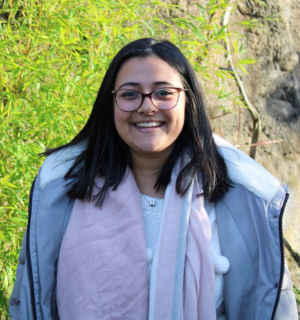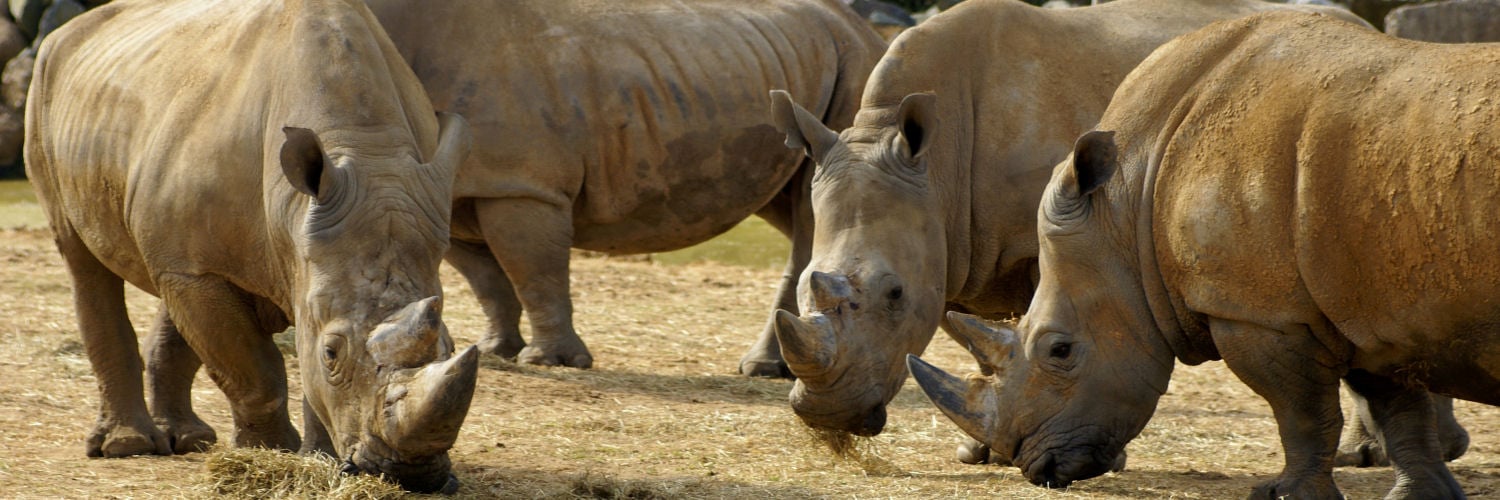  |
Jemma Dias, Conservation Educator and Research Coordinator at Colchester Zoo |
The British and Irish Association of Zoos and Aquariums (BIAZA) has more than 100 zoo and aquarium members with a strong focus on highlighting the role of zoos in conservation, education, and research.

As a recent report stated that 75% of UK residents visit wildlife attractions, British zoos have responded well to the public’s interest in conservation and have shifted their focus to both global and British species conservation. This has led to the establishment of a number of projects which could support teachers in delivery of the content of the Cambridge OCR GCSE Natural History programme or support students in exploring natural history concepts.
Colchester Zoo operates a camera trap loan scheme in which schools can borrow wildlife monitoring equipment, such as wildlife cameras and remote bat surveying equipment, from the zoo in order to explore the wildlife living on school grounds. The loan includes an activity pack to guide students through the process of setting up their camera, exploring the footage captured and analysing any data collected, as well as curriculum linked activity packs and animal identification guides. Results have shown that engagement with the camera traps and exploration of local wildlife has significantly increased participants’ connection to nature which has positive benefits for mental health and wellbeing, environmental education and participation in wildlife conservation. Colchester Zoo and University of Suffolk have also offered sixth forms and colleges the opportunity to investigate the species of bat they might find in the local area using remote recorders. The results will be shared with the school and sonograms can be analysed further, while the data will help to create a clearer picture of bat distribution across Suffolk and Essex.
Colchester Zoo is supporting a project by the Wellcome Sanger Institute, known as BIOSCAN, which aims to provide a database of insect species diversity over space and time, forming a conservation resource for DNA-based monitoring in the UK. This research project will study the genetic diversity of 1 million flying insects from across the UK by collecting insect samples from 100 sites – Colchester Zoo is one of these. The hope is that, after creating this database of genetic information, genetic material can be captured from the environment, such as by taking a sample of air or water, and loaded onto small, computerised readers which will scan the genetic material of a species or group and will inform conservationist of the insects living within an area. Conservationists can then plan projects to better protect these species and the habitats they rely on. Colchester Zoo trailing session to engage upper secondary-aged pupils in this project to develop DNA analysis skills.
After the development of two new exhibits, Paradise Wildlife Park sought to put their waste construction materials to good use by building swift boxes out of offcuts of FSC wood in a project named the Big Bird Box Build: Sustainably Saving Swifts. In the last 30 years, we have seen declines in swift populations of over 50%, largely due to habitat loss and pesticide use decimating insect populations. The swift boxes were distributed amongst 254 Hertfordshire schools, alongside activity and information packs detailing ways to attract swifts to school sites in time for the swifts return to Britain. The project aims to create safe nesting opportunities for the birds whilst connecting children with a native species, as well as supporting the development of skills for sustainability and wildlife conservation. The zoo plans to extend this to secondary schools in coming years.
In 2022, Battersea Park Children’s Zoo partnered with the London Beekeepers’ Association to share sustainable beekeeping with their visitors, whilst also increasing the number of healthy pollinators in Battersea Park, creating a hub for vital inner-city community education and improving access to sustainable food sources. Since the opening of the apiary in April 2022, there have been over 180 hours of educational sessions based around the hives. Due to the location of the zoo, this project has engaged with schools centred within urban ecosystems and students from a range of socioeconomic backgrounds. As part of their project, the zoo also hosts the School Food Matters charity their school groups free of charge, which has seen around 250 students from inner city London visit to learn about bees and their role in food production by seeing the bees and their hives up close before a classroom session on pollination and bee biology. It is intended that, in future, the apiary can be used to train future beekeepers in sustainable practices through this collaboration.
The Ocean Conservation Trust’s learning program runs a number of boat trips exploring Plymouth Sound, the UK’s first ever National Marine Park. These sessions connect school groups not only with their local blue spaces, but with ocean conservation as a wider concept. The Plymouth Sound Adventures tour focuses on engagement in ocean science in a professional capacity by exposing pupils to hands-on research activities. The fully interactive trip includes using a plankton trawl, observation of marine life under microscope, as well as wildlife spotting and identification. The Plymouth Sound Navigator tour, which is currently being finalised, has a focus on land formations in the area and the unique typography of the Marine Park. It compares the modern-day harbour to how it was hundreds of years ago and provides an insight on how areas of the Marine Park have been used throughout history. This session has been designed with the GCSE Natural History in mind, supporting its goal of giving pupils a deeper knowledge of the natural world around them. All sessions can be tailored specifically to each group’s learning objectives. The Ocean Conservation Trust also offers virtual tours to make it possible for schools who aren’t located near the coast to connect with the ocean.
Jemma Dias – Conservation Educator and Research Coordinator at Colchester Zoo
After a career in zookeeping, Jemma decided to focus on providing education opportunities for visitors, schools and other partners in zoos. Jemma has worked on the Education Team at Colchester Zoo for two years with a focus on higher education, native species and research.
Jemma has worked in education in a number of zoos and aquariums across the UK, including SeaLife London Aquarium, Blue Planet Aquarium and Chester Zoo alongside her work as an animal keeper and her university studies, before joining Colchester Zoo as part of a progressive team.
Jemma believes that learning about natural history and connections to nature are the foundation for inspiring future conservationists and animal keepers. She also works to make zoo research and animal welfare accessible through education, as well as engaging supporters with native species.
Keep up to date with our proposed GCSE in Natural History and other Cambridge OCR Natural History news by signing up our email newsletter and updates. You can read back issues of our Natural History newsletter here.

